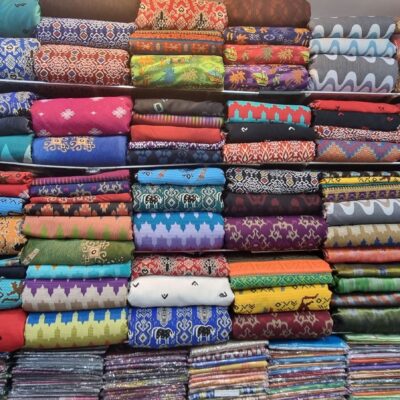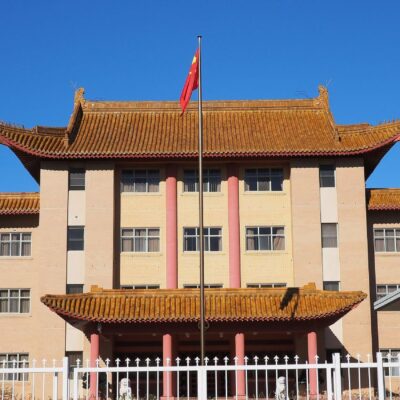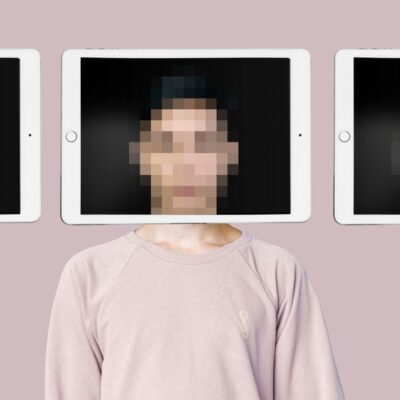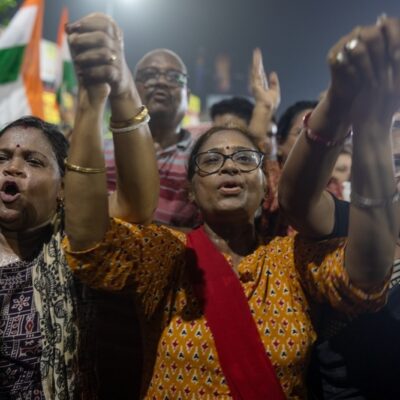Hana Assafiri OAM is an Australian activist and entrepreneur. She’s best known for founding the much-loved inner Melbourne institution, Moroccan Soup Bar, which serves delicious food while providing employment for marginalised women, particularly those experiencing family violence.
In 2017 she was award a Medal of the Order of Australia for outstanding achievement and service for her work fostering intercultural understanding, particularly in relation to women and racism.
Ms Assafiri had a turbulent childhood in Lebanon and Australia, which included sexual abuse as a young child and marriage at 15, in Australia, to a violent husband—experiences which she recounts in her memoir published last year.
She spoke with Melbourne Asia Review’s Managing Editor, Cathy Harper about current issues in Australia and beyond.
Part of your work is to help organisations and communities ‘audit’ their culture, so it would be interesting to hear your ‘audit’ of contemporary Australian society and the place of Muslim women in it.
To answer this, it’s important to place a framework and a context around my own speaking position. I was born and partly grew up here, but I also spent long periods as a child in Lebanon. Lived experience has informed my analysis. I also think it’s very important to apply a gendered lens to the way in which multiculturalism functions successfully or otherwise—the place of women within it and how women shepherd the next generation and the opportunities available to us. So, it is from that perspective and through that lens that I guess we apply what you’re calling an ‘audit’, which is my lived experience and that of the community I work with.
Islamophobia is rearing its ugly head in Australia and globally. Underpinning its global expression is the implicit idea that Islam, in all its iterations, is at odds with Western society, human rights and progress. This is nonsense. But those concepts translate to a lived experience, leaving women unsafe. They are acutely felt by women in a different way to how they are experienced by men. Over the years, and certainly since September 11, 2001—which was the start of probably the most heightened iteration and expression of Islamophobia in modern times—we have seen communities justifiably or otherwise deliberately targeted by surveillance and cultural and ethnic profiling, while the official rhetoric is one of multiculturalism, equal opportunity, and diversity. For some groups this has not been a realised reality. The result has been the further marginalisation, ostracisation and disengagement of those communities who end up, in the main, living on the margins of society and in silos. This happened again after the London bombings in 2005 and the Paris shootings in 2015 and yet the impact was felt acutely by Muslim communities in Australia, including by women who were born here.
The response from Muslims in Australia is almost always from the men in institutions such as the Board of Imams, the Islamic Council of Victoria, and whatever other iteration of a recognisable institution. This means that, in the absence of gendered understanding, some of the most conservative views and perspectives of Islam are what are being offered up in an Australian context and given legitimacy. That frames the reality for Muslim women and what it means to be a Muslim living in the West when it’s defined by the most conservative versions of Islam, and/or the fear of Islam in Western discourse. Muslim women have very few, if any, avenues to contribute to our own authentic expression about who we are and what it means to be Muslim living in the West.
So that’s the broader context which we try to respond to in a number of different ways. We’re not recognised or funded, we’re simply a community group that’s tasked with disrupting the cycle of disadvantage and crisis for Muslim women. Whether it’s gender-based violence and/or disadvantage more broadly, and putting in place systems and guardrails to assist women transitioning to independence. In that space, the more heightened the rhetoric in government and in the media, the more we feel the need to respond in an innovative way to think of creative ways to engage communities around better understanding. We created a number of different events, ‘Speed date a Muslim’ being one of them, which communities had a massive appetite for, because it was an example of very few spaces that are available where women can themselves talk about their experiences and engage communities in a meaningful way.
In relation to the Israel-Gaza war, we’ve conflated that entire discourse down to and reduced it to Islam and Judaism. But it really has to do with weaponised politics and some of the most brutal men, whether it’s Benjamin Netanyahu or Hamas. Those who are on the receiving end of those circumstances are in the main women and children who have nothing to do with decision making at any level of governance. In our view this is gendered violence. Men tend to say ‘you stay home, we will protect you’ and these well-meaning men, and I accept that the intention is honourable, yet the reality leaves women without autonomy and agency, which is not okay.
Multiculturalism, whilst promising, definitely requires interrogation. It requires a gendered lens in looking at and understanding the diverse experience of communities. At the moment, we tend to understand multiculturalism as something that is fixed and that cultures are fixed, unchanging, and their definition is almost always defined by men, at times some of the most conservative men, and they don’t speak to or reach the needs of the whole community and therefore create further barriers.
Are there unique features to Islamophobia or racism against Muslims in Australia?
The shift to the right globally has been driven by fear, and the threat of Islam making its way into Western societies. That rhetoric is mirrored in Australia sadly through the implicit understanding that ‘you must assimilate with our way of life’. Well, who’s ‘our’? We are part of ‘our’. There is the assumption that Islam is a threat, but we don’t need to be rescued from Islam or denounce Islam or let go of values that are part of our way of life such as civility and human rights. We don’t do ourselves any favours by allowing the mouthpiece Muslim communities, to say some of the most outlandish things like ‘men have a right to marry four women’ and ‘women should be the property of men’ and all that sort of nonsense. That’s fuelled and exacerbated this idea that Islam is a threat to our way of life. The underpinning values of Islam are human rights, social justice, plurality, diversity and these are also the hallmarks of Western democracies. The departure from those values is also real both in Islamic countries around the world and in Western democracies, in how we treat First Nations people, asylum seekers, Muslims, and we put things in place that are contrary to some of those values.
To what extent do you think good interfaith relations are possible, particularly at the moment but more broadly than that, between Jewish and Muslim communities in Australia?
Again, that needs a backstory. Jewish communities and Muslim communities on the face of it have never exactly had a love-fest in Australia or elsewhere. Those tensions have been ever present to some extent, but there hasn’t been active propositions for meaningful engagement over the years, certainly not from governments, and certainly not from some Muslim leaders. Some interfaith conversations have tried to tinker at the edges of this conversation, but with very little meaningful change.
That said, we at the Moroccan Soup Bar 18 years ago, took a group of Muslim women to the Jewish Museum for our progress and growth and coexistence and community cohesion. I think women respond to social tensions very differently. We don’t retaliate and we’re not revengeful in the same way that we need to punch on ideas. Through our lived experience in the spaces we occupy, we’ve necessarily learned to use compassion and wisdom as a means of engaging some of those tensions. We took a group, reluctantly initially, to the Jewish Museum and the extraordinary thing that happened in that setting was that we talked about the commonality of what it means to be faith-based, what is the place of women inside those faiths, and how some of the rituals are very, very, similar indeed. In the end the women didn’t want to leave. That’s what gives me hope that even now, if we enable and allow women to plant that flagpole of what may be possible, that transcends a retaliatory conversation and holds space for validating all realities, all grief, trauma. And then we say ‘no more tension, no more conflict, no more death’ and that becomes your vision.
Is there much, or any, of this sort of community, small group, outreach going on at the moment?
I spoke at a Limmud festival in Melbourne in June—a festival that’s only held every two years and they talk about contemporary issues and a wide spectrum of thought. I was the only Muslim presenter there. I gained insight into the awful reality of living in a world where there’s armed guards standing outside your kindergartens. It cannot be a safe environment where you’re constantly triggered and you’re not naming a venue for a gathering beforehand for fear of it being unsafe. It boggles the mind that in Australia this is happening for people. I tried to gain insights, but also I’m not responsible for that and that’s the nuance that doesn’t happen. When communities don’t come together, there is a void that is filled by people’s anxiety and racism. Only when we can hear the discomfort and the tensions can we progress this conversation, so I put myself in those settings to try to genuinely understand what is happening, so we can shift and change some of those dynamics.
We hold conversations such as’ Speed Date a Muslim’ in good faith where Jews and Muslims come together to talk. We can’t resolve what is happening over there, but we can be allies to one another in what is happening here. Antisemitism and Islamophobia are the flip side of the same coin.
Could you reflect a bit on the place of Muslim men in Australian society and how that’s travelling?
Muslim men are as diverse as Muslim women in terms of the spaces they occupy in the countries they come from and their political priorities and personal aspirations. But it’s men who have been given permission to speak on Islam and, I think importantly, it’s the only reason they’ve been given permission to speak on Islam because the system itself is very much grounded in masculinist misogynist views. Some of the most conservative viewpoints of Islam, narrow, inarticulate expressions of Islam, are to be deemed legitimate. But if we remove the institutions and look at Islam itself it has no hierarchy. We are Muslims because of our relationship to Allah or God. But we also face a reality where we have to navigate a Western system that’s given legitimacy to a masculinist narrow conservative version that has defined Islam in heteronormative misogynist ways. And then religious freedom is defined as not allowing for gays and women. There’s nothing sacred about those institutions but the government has given them legitimacy.
Do you think there are some issues about which Australian Muslims do speak with a unified voice?
I think we have similar responses to Islamophobia and when we are the recipients of hostility and injustice, we find those things relatable. I think that’s because of our lived experience. People will respond—no matter their version of Islam, whether they’re cultural Muslims or devout Muslims—if there is a conversation that seeks to represent Islam as a threat to the world, there’s a unified reaction, a visceral reaction to that. There are also the marked rituals like Ramadan, which different people do differently, but whether you’re Afghan, Turkish, Iranian, Lebanese or Jordanian there’s a unified response to some of those festivities and celebrations.
Beyond that, I think there’s varying degrees of progress within the Muslim community about how Islam is understood. I don’t like using the word reformation because it’s not about reforming Islam at all. It is about understanding its traditions and its values rather than changing it. There’s a whole continuum of schools of thought around what Islam means for women, what it means for minorities, what it means for children, what it means as to whether you can have alcohol or not. There is no unified response. But the institutions we’ve set up will say, ‘we don’t do this, we do do that’. But they’re not really representative of the almost one million Muslims in Australia.
I’m interested in how queer rights, queer feminism, trans feminism and trans rights fit into that picture and how that’s playing out.
We should ask ‘what are the attributes that each community may need to enable it to flourish?’ You can’t justify as sacred your homophobia and disguise it with religious freedom. There’s nothing sacred about homophobia in Islam, both in terms of the traditions of Muhammad SAW, in his relationship to those who were on the margins, or queer, or whatever, and in the text, and in the Scripture itself. Nothing, says ‘you have a right to discriminate’, because Allah ultimately says, ‘I’m the only one that judges and I’m the only one that knows what’s in your heart’. Anything that’s contrary to that is un-Islamic and is an interpretation of men who want to use those interpretations to exert their own control.
I think there’s a little bit of movement. The world is connected and people see different spaces to have these conversations. I don’t think there is greater appetite in the official Muslim community. I recently wrote a book, a memoir, if you like, where I deliberately chose some stories of my life to convey meaning for our times about women and what is happening with women and violence against women—that it doesn’t define you. As part of the 40 or so years I’ve seen the gay and or transgender community struggle with not only the turmoil that they feel within themselves trying to make sense of who they are, but the inadequacy of our community’s capacity to have this conversation. So I decided to, as part of writing this book, write about and show that there is nothing to feel disrespected about. I choose to invite people into my life and come out or invite people to show solidarity, and that it does not dilute your faith at all and you don’t have to make those choices.
I’m interested in your thoughts on the rise of the ‘manosphere’, for want of a better word, in Western nations such as Australia. Do you think that the ‘manosphere’ is also having an impact on masculine culture in Muslim communities in Australia?
I think the ‘manosphere’ is a Trumpian way of thinking about the world. I think that for several decades diverse and marginalised communities have been knocking on the doors of the ‘establishment’ to say ‘we are here and you should extend your values of equity, justice, fairness, and kindness to us’. But instead of genuinely incorporating diversity, plurality, and all those things that will make for a better and more enriched society, a fault line has emerged and there’s been a doubling down on some of the most misogynist and racist viewpoints and a doubling down on reaffirming the very foundations of inequality of the system. There’s also been pushback to the Black Lives Matter movement and the climate movement. And then Trump comes along and says ‘no! Push back’. The system does not want to share power with women or minorities.
I think we need to reinvest in our core values, reinvest in multicultural Australia, reinvest in education and really reinvest in the young, where the solutions to this mess are. Maybe the only thing we can do is bear witness to these times, but change is inevitable. We’ll get there because underneath people are decent. The powers that be are the powers that be, and that is not a reflection of society.
This transcript has been edited for clarity and length.
We respectfully acknowledge that we live, work, and operate on unceded lands and honour the deep, ongoing connection that First Nations communities have to Country. We recognise the privilege and accept the responsibility entrusted to us as benefactors and allies on these lands and commit to promoting equity & justice.
Image: A grey and yellow patterned surface, Museum of Turkish and Islamic Arts, Istanbul. Photo by Mobin Amanzai on Unsplash.




